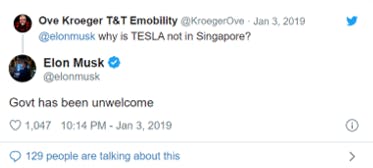Electric vehicles!! We are not done with you yet!! In the recent year, Singapore has jumped on the electric vehicle bandwagon in a bid to GO-GREEN, towards a cleaner transport system. But how much of this is actually cleaner? Let’s find out!

https://threezeros.unc.edu/news/2018/01/08/nissan-leafs-wrapped-three-zeros/
The electric vehicle (EVs) has boasted to reduce greenhouse-gas emissions and many have even tried selling it as “zero-emission”, a very bold statement to make. Singapore Deputy Prime Minister and Finance Minister Heng Swee Keat said that the vision was to phase out internal combustion engine vehicles and have all vehicles run on cleaner energy by 2040, placing a significant bet on EVs.
Here comes the main consideration in implementing EVs, which are the power generation sources. In Singapore, 95% of its electricity is generated by natural gas, which releases 40-45% less carbon dioxide than coal, and 25-30% less than oil. Singapore is also looking to increase solar energy power production to 4% of Singapore’s total electricity demand. Thus, the EVs in Singapore is justifiable in reducing overall carbon emissions in the future, tying in with the goals in introducing greener energy sources into Singapore’s power grid. In comparison, countries/regions that rely heavily on coal for power generation, would be better-off adopting efficient internal combustion engine vehicles, such as hybrid vehicles would fair better than EVs, if the EV would have to rely on energy from coal energy sources.

In other interest news, the worlds best-selling EV, the Tesla, was unwelcome by Singapore government, with Singapore’s environmental minister Masagos Zulkifli stating that the country is more keen on environmental solutions rather than a lifestyle. Besides, think about the carbon footprint from importing a fully assembled Tesla from America or Shanghai (one of it’s manufacturing plants) to Singapore.
Thanks to Mengli for giving us the direction for this post (:
References
https://threezeros.unc.edu/news/2018/01/08/nissan-leafs-wrapped-three-zeros/
https://youmatter.world/en/are-electric-cars-eco-friendly-and-zero-emission-vehicles-26440/

